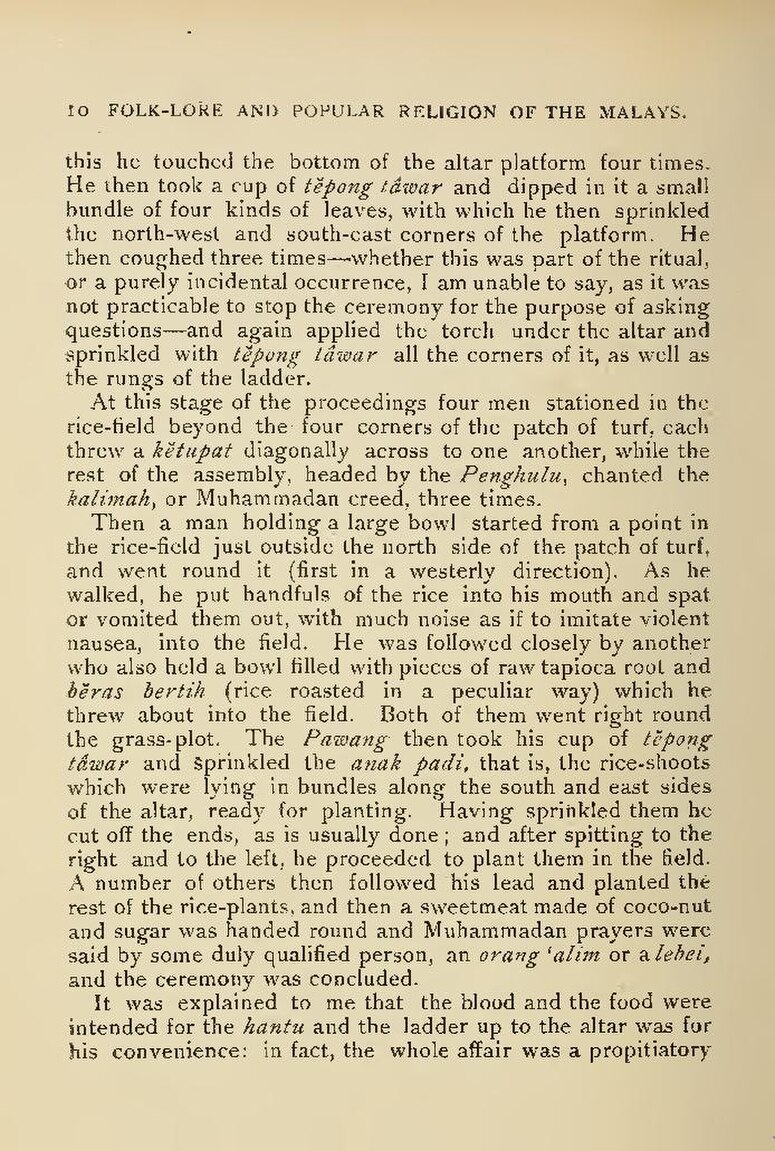he touched the bottom of the altar platform four times. then took a cup of tĕpong tâwar and dipped in it a small bundle of four kinds of leaves, with which he then sprinkled the north-west and south-east corners of the platform. He then coughed three times—whether this was part of the ritual, or a purely incidental occurrence, I am unable to say, as it was not practicable to stop the ceremony for the purpose of asking questions—and again applied the torch under the altar and sprinkled with tĕpong tâwar all the corners of it, as well as the rungs of the ladder.
At this stage of the proceedings four men stationed in the rice-field beyond the four corners of the patch of turf, each threw a kĕtupat diagonally across to one another, while the rest of the assembly, headed by the Penghulu, chanted the kalimah, or Muhammadan creed, three times.
Then a man holding a large bowl started from a point in the rice-field just outside the north side of the patch of turf, and went round it (first in a westerly direction). As he walked, he put handfuls of the rice into his mouth and spat or vomited them out, with much noise as if to imitate violent nausea, into the field. He was followed closely by another who also held a bowl filled with pieces of raw tapioca root and bĕras bertih (rice roasted in a peculiar way) which he threw about into the field. Both of them went right round the grass-plot. The Pawang then took his cup of tĕpong tâwar and sprinkled the anak padi, that is, the rice-shoots which were lying in bundles along the south and east sides of the altar, ready for planting. Having sprinkled them he cut off the ends, as is usually done; and after spitting to the right and to the left, he proceeded to plant them in the field. number of others then followed his lead and planted the rest of the rice-plants, and then a sweetmeat made of coco-nut and sugar was handed round and Muhammadan prayers were said by some duly qualified person, an orang ‘alim or a lebei, ceremony was concluded.
It was explained to me that the blood and the food were intended for the hantu and the ladder up to the altar was for his convenience: in fact, the whole affair was a propitiatory
